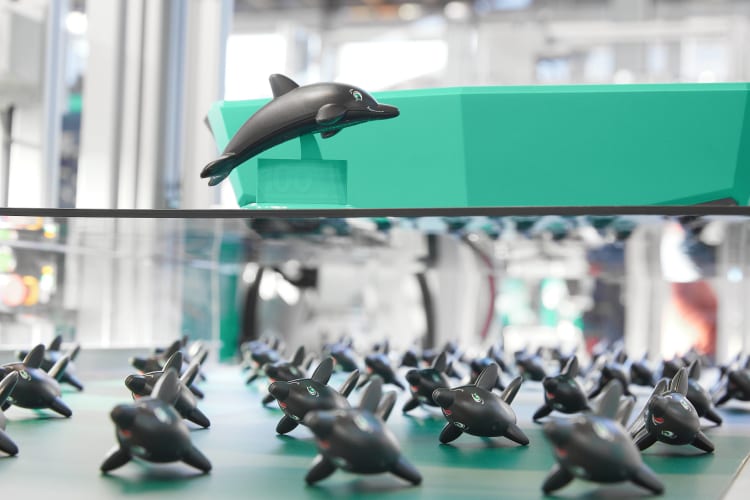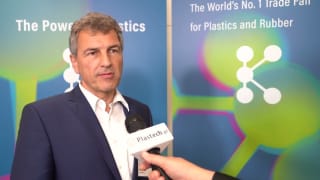
Arburg will put sustainability at the center of its K 2025 presence with the arburgGREENworld pavilion, aligned with the trade fair motto "The Power of Plastics! Green - Smart - Responsible". Located in the open area in front of Hall 16 and spanning about 400 square metres, the pavilion will immerse visitors in a water-themed setting and present how the company positions itself as an enabler for sustainability. The concept brings together resource conservation, CO2 reduction and circular economy under the arburgGREENworld programme. Alongside practical demonstrations, alternative materials will be presented and discussed, with an emphasis on actively shaping the future of plastics as recyclable materials. The stations will be staffed mainly by Arburg trainees, who will provide first-hand explanations of processes and measures across the sustainability spectrum.
The route through the pavilion follows the life cycle of plastics in aquatic contexts, from marine litter to recycled feedstock and back into new products. Visitors can observe how end-of-life items return to the loop via simple, didactic setups such as a pedal-powered shredder and an industrial mill, and how process technology compensates for fluctuating qualities in recyclate streams. The approach highlights both materials and machinery, including control functions tailored to regrind and post-consumer HDPE, and closes with product finishing options offered on site and with partners at the fair.
From marine plastic to recycled material
The pavilion opens with the challenge of plastic waste in oceans and shows how this material can be reclaimed and processed into high-quality recyclates. A concrete example is the conversion of discarded fishing nets, known as ghost nets, into high-density polyethylene (HDPE) by Healix. Visitors can engage with the topic by pedalling a trainee-built recycling bike to shred items such as yoghurt pots, demonstrating hands-on how end-of-life products are reintroduced into the recycling loop. An industrial mill is also in operation, illustrating how regrind is produced and returned to the injection moulding process.
From recycled material to model dolphin
An automated injection moulding production cell demonstrates upcycling of used and processed fishing nets. It produces model dolphins efficiently from granulated HDPE recyclate. To ensure reliable processing despite material fluctuations, the machine control features the "aXw Control RecyclatePilot" function. A 1+1 family mould is used to injection mould the curved upper and lower shells. A Multilift Select 8 linear robot system removes and handles the two half-shells, which are then ultrasonically welded in the cell. Visitors can have their dolphins individually printed at a separate laser station. At partner Plasmatreat, Hall 11, Stand I65, the dolphins can optionally be given facial features using pad printing.

In the arburgGREENworld pavilion at K 2025, model dolphins are being made from recycled material based on discarded fishing nets.
Lecture programme highlights
In addition to the exhibits and hands-on stations, the arburgGREENworld pavilion will host a varied series of expert talks:
- Prof. Andreas Fath of German Furtwangen University, Arburg brand ambassador and the "Swimming Professor", will report on combating microplastics in waterways, including his "cleandanube" and "pureelbe" campaigns, during which he swam the length of the Danube and Elbe rivers.
- Prof. Hans-Josef Endres from the Institute of Plastics and Circular Economy (IKK) at Leibniz University Hannover will address energy optimisation in injection moulding and the challenges of recycling plastics.
- Marcel Alberts, CEO of Healix, will present a vision for returning ocean-bound plastics to the plastics cycle.
- Torsten Becker, CEO of start-up carbonauten, and charcoal burner Thomas Faißt will discuss "Shaping the future with biochar – high-tech meets charcoal burning", focusing on the potential to produce CO2-negative compounds with biochar.
- Luca Simon, Applications Manager Circular Economy, will outline Arburg's sustainability activities and explain approaches to reducing the CO2 footprint of injection moulding machines.
Other presentations will highlight the "Carbon Busters" trainees project, through which the VDMA association honours young climate protectors, and the use of environmentally friendly e-fuels in motor racing.




